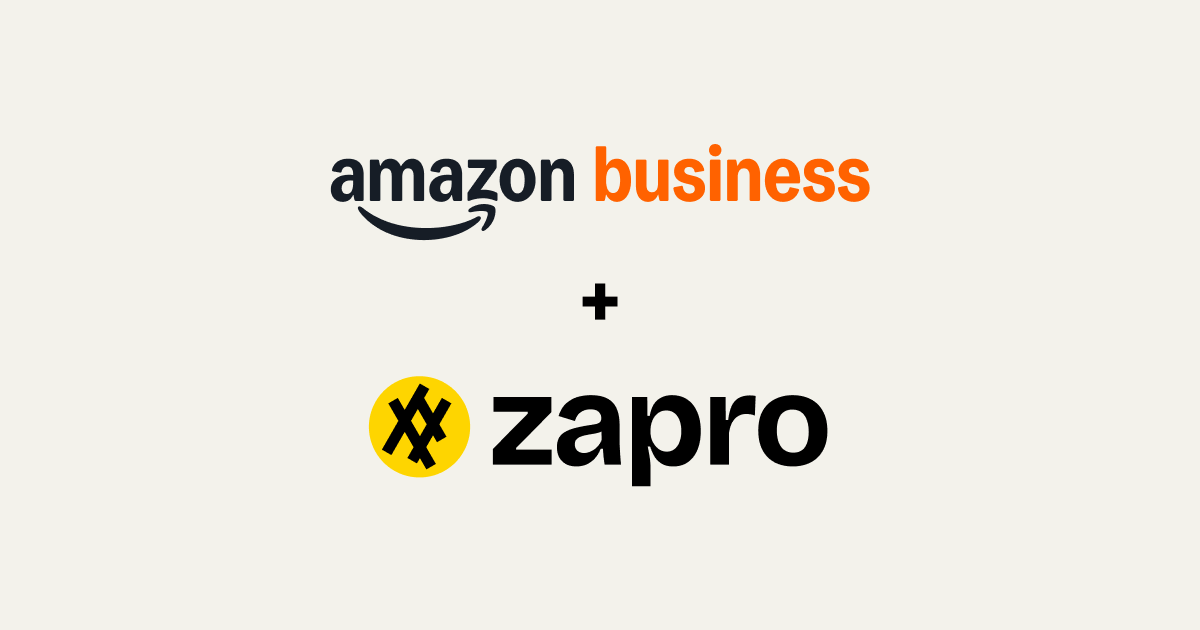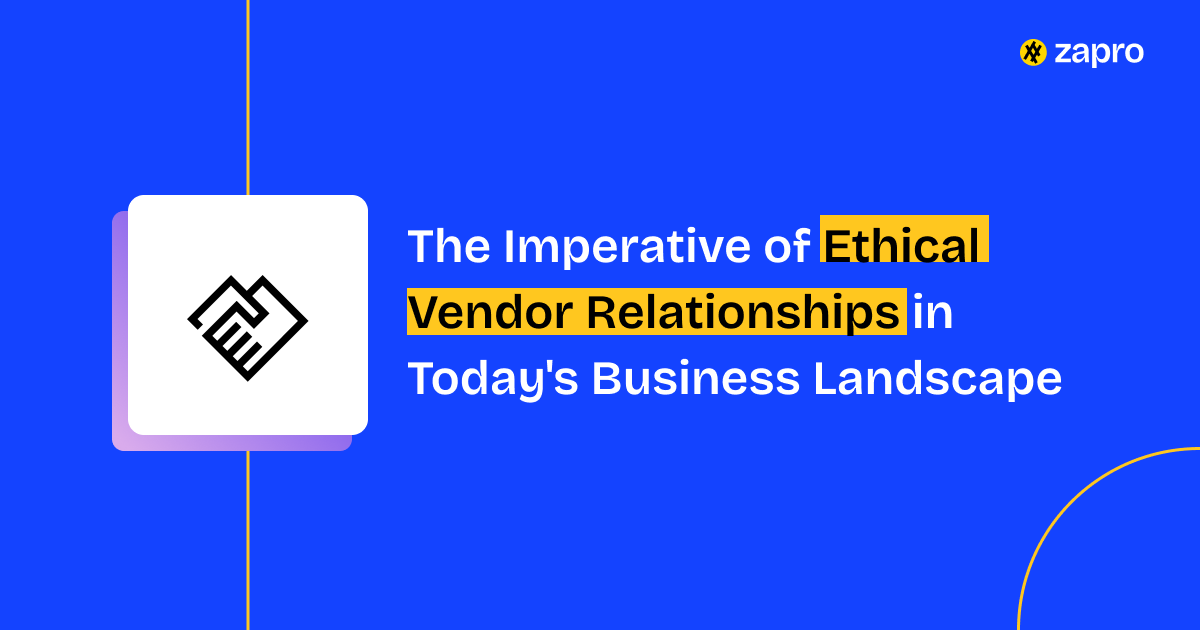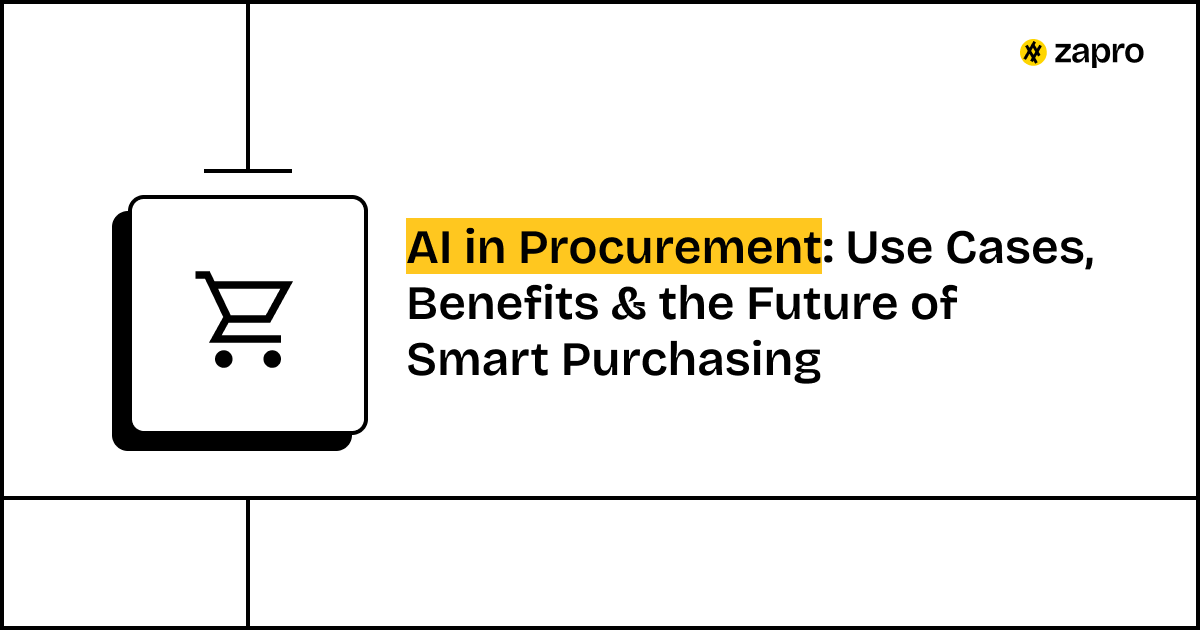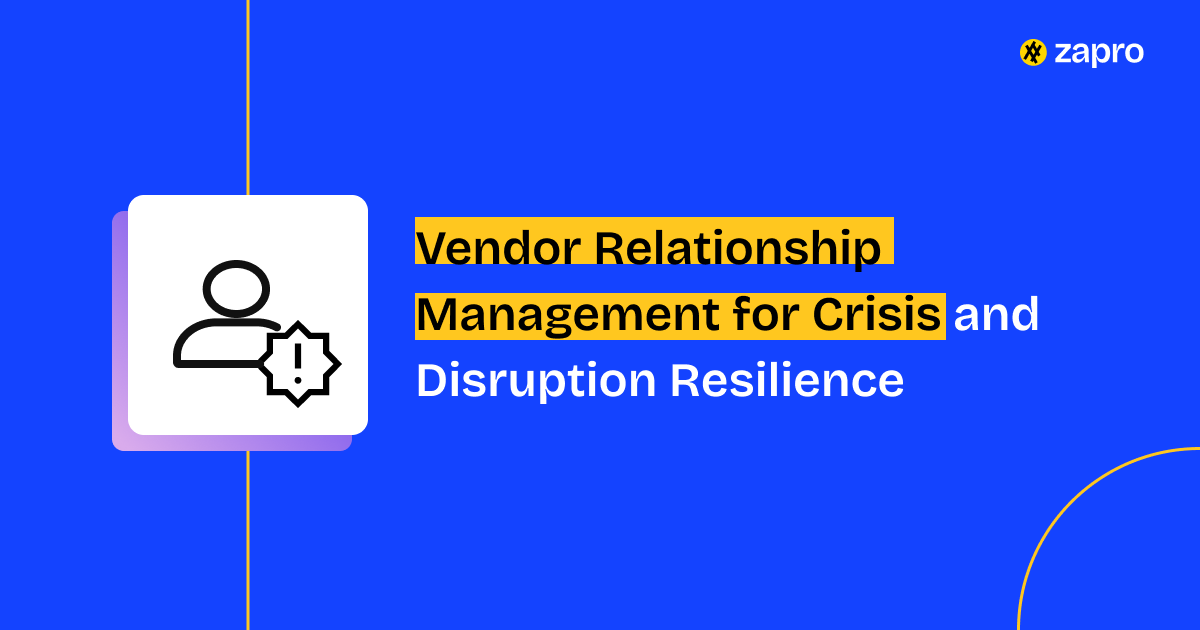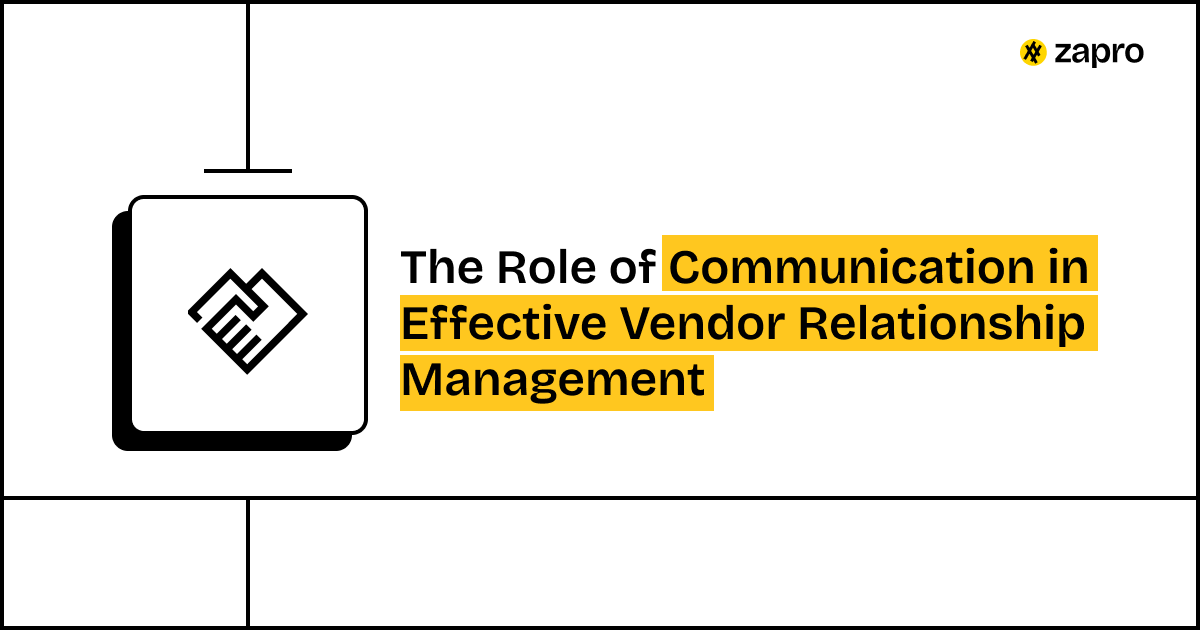There was a time when procurement was merely looked upon and used for negotiating prices. A quick forward to the present, the decisions that your organization makes in sourcing is interpreted as a public statement about your company’s values. As a result, when a company is aiming to touch the skies, making ethical vendor management is a crucial element for its success. Therefore, your investors, regulators, and customers also wish to see your business cling on to the high moral standards.
Building truly sustainable supplier relationships isn’t about checking boxes; it’s about creating a shared commitment to fair trade vendor practices and corporate social responsibility that benefits everyone overall. Missing out to comprehend the essential developments might threaten your brand’s image in the future.
The Imperative of Ethical Vendor Relationships in Today’s Business Landscape
Beyond Compliance: Driving Value Through Ethical Sourcing
While avoiding legal penalties is the baseline, ethical vendor management offers a competitive advantageous position. While working with suppliers who showcase high labor standards you become the help for them to create an amazing, dependable and responsible supply chain.
Be mindful of hiring through ethical sourcing – this promises higher quality, more reliable partnerships, and stronger loyalty from suppliers who share your values. This helps a cost center to elevate to become the best value driver and immense growth.
Learn about Vendor Relationships Management.
Consumer Expectations and Brand Reputation
Consumers should be well aware of the product origins and from where they are coming. Anything involving child labor or environmental damage at a supplier can damage years of brand building in no time. Apparently, a lack of transparent supply chain ethics is a major reputational danger.
By making corporate social responsibility procurement a priority, you effectively steer clear of these hazards and demonstrate integrity, securing outstanding consumer trust.

Gartner survey reveals that 84% of respondents experienced operational disruption as a result of third-party risk incidents, 66% experienced adverse financial impact, and 60% were concerned about increased regulatory scrutiny.
Core Principles of Ethical Vendor Management
Sustainable supplier relationships are driven by proper interactions and an ethical foundation that is solid enough to guide through every conversation.
Transparency and Accountability
Ethics thrive in the light. Ethical vendor management requires being open with your suppliers about your expectations and making them accountable for their actions. Furthermore, you must be transparent about supply chain ethics about your own performance and decision making.
Fair Labor Practices and Human Rights
This is to be strictly followed by your partner. Law abiding and following regulations pertaining to the region is a must. Again, human rights regulations, safe working conditions, fair wages, reasonable hours, and zero child labor are the ones you need to look for. Every strategic vendor performance manager should make fair trade vendor practices a key responsibility and part of how they manage supplier relationships.
Environmental Stewardship and Sustainability
As a part of the corporate social responsibility, it is essential to cutting down on waste, lowering carbon emissions, choosing sustainable materials, and managing energy use wisely. Procurement demands looking at the environmental role of your supply chain.
Anti-Corruption and Anti Bribery
Ethics requires clean hands. Ensure zero corruption, bribery, and facilitation payments by setting up a clear policy. Make sure every transaction happens through legitimate channels as this is what ethical vendor management is all about. This protects the interests of both your company and your vendors.
Data Privacy and Security
In the digital age, ethics extends to information. Suppliers who handle your or your customers’ data must adhere to the highest standards of security and privacy regulation. Protecting sensitive information is an incredible part of transparent supply chain ethics.
Ethical Vendor Management Shouldn’t Be Complicated

Integrating Ethics into the Vendor Lifecycle
Ethical Considerations in Vendor Selection and Due Diligence
Onboard vendors after completing the background check is the first step to signing the best one on to your team. The background verification check should cover financial practices of the vendor, labour treatment, environmental compliance, bribery, and anti-corruption measures.
Embedding Ethical Clauses in Contracts
Contracts are the enforcement tool for ethical vendor management. Include specific, measurable clauses requiring adherence to your Code of Conduct, fair trade vendor practices, and environmental regulation. The contract should explain the reasons and its surrounding consequences for non-compliance.
Monitoring and Auditing Ethical Performance
Avoid assumption work when it comes to compliance; verify it. A perfect schedule in place to run ethical audits, using third party verification throws detailed insights. Monitoring periodically is the easiest way to sustainable supplier relationships.
Training and Capacity Building for Suppliers
Help your partners succeed. Train them on your ethical codes, sustainability goals, and specific regulation requirements even before they come asking for it. This collaborative approach to corporate social responsibility procurement ensures your suppliers can effortlessly meet your standards.
Learn about vendor relationship tools.
Building a Culture of Ethical Partnership
Open Communication and Dialogue on Ethical Standards
Create a safe space for dialogue. Encourage suppliers to flag potential ethical hazards or challenges without any delay. This transparent supply chain ethics approach turns dangers into opportunities for joint problem solving.
Collaborative Problem Solving for Ethical Challenges
When an ethical concern comes up with a supplier, it’s better to work together to find and fix the root cause instead of ending the partnership right away. Taking a collaborative approach builds trust and helps create sustainable supplier relationships.
Recognizing and Rewarding Ethical Excellence
Be generous and appreciate your vendor when they have a strong commitment to ethical practices. Acknowledging and celebrating their efforts works like a chain reaction – other vendors get motivated and start following the high standards.
Addressing Common Ethical Dilemmas in Vendor Relationships
Balancing Cost Pressures with Ethical Sourcing
This is the toughest challenge. You cannot squeeze suppliers so hard on cost that they are forced to cut corners on safety or labor. Ethical vendor management requires accepting that fair trade vendor practices may sometimes mean a marginally higher price, but the incredible value of reduced risk and better quality overall justifies the cost.
Managing Sub Supplier Ethics
Your role does not end at the Tier 1 supplier. Require your direct partners to maintain transparent supply chain ethics by auditing their own sub suppliers and enforcing your code of conduct down the chain. This prevents inadequacies from hiding in the lower tiers.
Responding to Ethical Breaches
At the time of attack, the response to contain and address the breach should be spontaneous. Follow steps such as conducting a thorough investigation, taking decisive corrective steps, and keep stakeholders informed throughout the process. This shows that maintaining compliance is a top priority.
Leveraging Technology for Ethical Vendor Management
Supplier Code of Conduct Management
Use technology to host, disseminate, and track every supplier’s adherence to your code of conduct. Digital sign offs and version control ensure regulation compliance is effortlessly managed.
Risk Assessment Tools for Ethical Compliance
Automated risk assessment tools are used for finding futuristic problems today. In other words, prepare yourself to attend to potential issues that may arise in the near future by analysing supplier’s location, industry, known ethical concerns, including corruption or poor labour practices.
Auditing and Reporting Capabilities
Use technology to collect audit reports, track corrective action plans, and visualize corporate social responsibility procurement performance overall. When everything becomes accessible from a single platform, it helps effective decision making.
Conclusion: Ethical Procurement as a Strategic Advantage
Ethical vendor management is the ultimate strategic advantageous move. It is a constructive approach that guarantees sustainable supplier relationships that are well-aligned with the values of modern consumers.
Maintain the policy of fair trade with your vendors. Also, maintaining a transparent supply chain ethics a core role of your procurement process. This will not only strengthen the bond with the vendors; it would also serve the greater purpose of overcoming reputational hazards and secure an outstanding foundation for long term success.

Build Vendor Relationships on Trust, Not Just Transactions
Zapro empowers you to manage ethical vendor partnerships with complete transparency.
FAQ
1. What defines an ethical vendor relationship in modern business?
An ethical vendor relationship goes beyond basic contractual obligations and centers on transparency, fairness, and mutual respect. It means ensuring vendors follow labor laws, maintain safe working conditions, practice environmental responsibility, and operate with financial integrity. Ethical partnerships also involve honest communication about pricing, timelines, and capabilities, while respecting intellectual property and data privacy. In today’s landscape, this includes verifying that vendors don’t engage in discrimination, corruption, or exploitative practices throughout their supply chain.
2. How do unethical vendor practices impact a company’s reputation?
Unethical vendor practices can severely damage a company’s brand reputation, even if the company itself maintains high standards. Consumers and stakeholders increasingly hold businesses accountable for their entire supply chain. A single vendor scandal involving child labor, environmental violations, or data breaches can trigger public backlash, boycotts, and loss of customer trust. In the digital age, negative news spreads rapidly through social media, potentially causing lasting damage to brand equity. Additionally, regulatory bodies may impose fines or sanctions, while investors may withdraw support, viewing poor vendor oversight as a sign of weak governance.
3. What are the key warning signs of potentially unethical vendors?
Several red flags signal potentially unethical vendor practices. These include unusually low pricing that seems too good to be true, reluctance to provide transparency about their operations or supply chain, lack of proper certifications or compliance documentation, and frequent workforce turnover. Other warning signs include resistance to site visits or audits, vague answers about labor practices, absence of written policies on ethics and compliance, and unwillingness to sign agreements that include ethical conduct clauses. Companies should also be cautious of vendors with a history of legal disputes, those operating in regions with weak labor protections without proper oversight mechanisms, or vendors who cannot provide references from other reputable clients.
4. How can small businesses implement ethical vendor management without large budgets?
Small businesses can establish ethical vendor relationships through cost-effective strategies that don’t require extensive resources. Start by creating a simple vendor code of conduct outlining your ethical expectations and requiring vendor acknowledgment. Conduct basic due diligence using free online resources to check vendor backgrounds, certifications, and any public records of violations. Ask direct questions about labor practices, environmental policies, and compliance during vendor meetings. Build relationships with local vendors where you can easily verify practices firsthand. Join industry associations that share vendor vetting resources, and consider collaborative audits with other small businesses. Prioritize long-term partnerships over constantly switching to cheaper options, as stable relationships allow better oversight and mutual accountability.
5. What role does technology play in maintaining ethical vendor relationships?
Technology has become instrumental in monitoring and maintaining ethical vendor relationships at scale. Digital platforms enable real-time tracking of vendor compliance through automated reporting systems, blockchain technology for supply chain transparency, and AI-powered risk assessment tools that flag potential ethical concerns. Cloud-based vendor management systems centralize documentation of certifications, audit reports, and performance metrics, making it easier to identify patterns or irregularities. Communication tools facilitate regular check-ins and transparent dialogue, while data analytics help companies assess vendor practices against industry benchmarks. Additionally, technology enables remote audits through video conferencing and digital document verification, making ethical oversight more accessible and cost-effective for businesses of all sizes.
Don’t miss our weekly updates
We’ll email you 1-3 times per week—and never share your information.
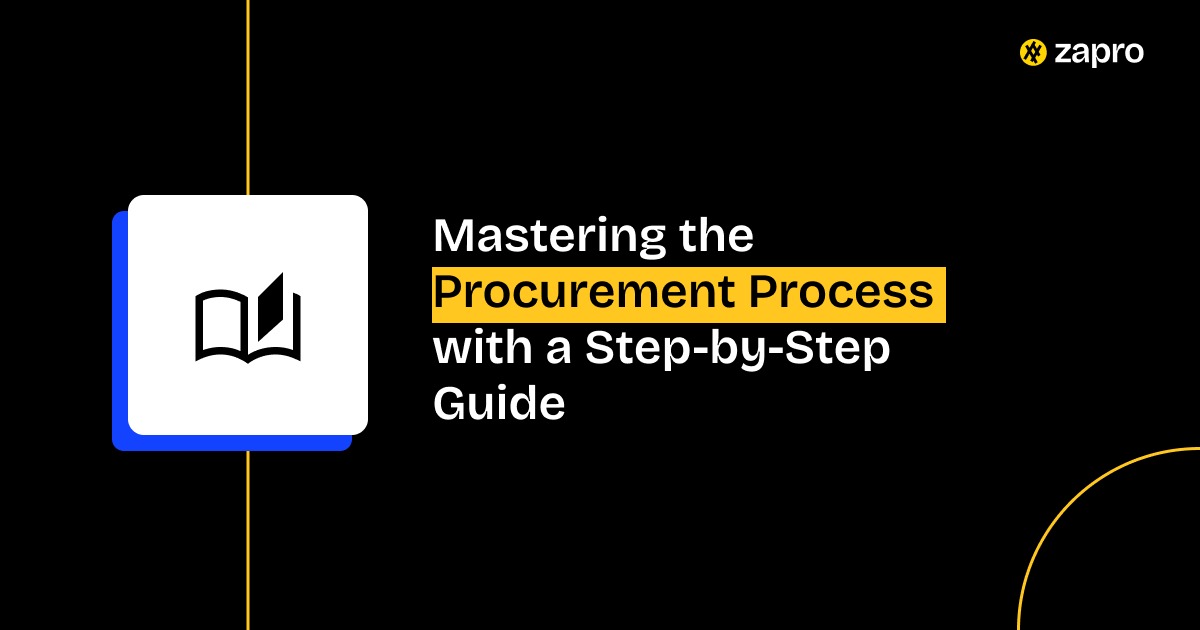
 Healthcare
Healthcare Financial Services
Financial Services Technology
Technology Venture Capitalist
Venture Capitalist Chief Procurement Officer
Chief Procurement Officer Chief Financial Officer
Chief Financial Officer